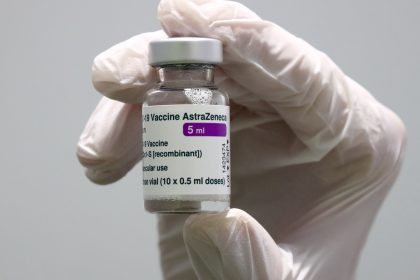NIH Launches Long COVID Clinical Trials

WASHINGTON — The National Institutes of Health on Monday began enrolling patients for clinical trials to test long COVID treatments, nearly three years after Congress gave the agency $1.15 billion to research and test such treatments.
The opening of enrollment is for phase 2 clinical trials that will evaluate at least four potential treatments for long COVID, with additional clinical trials to test at least seven more treatments expected in the coming months.
According to the NIH, the treatments will include drugs, biologics, medical devices and other therapies.
Though a press release announcing the trials made no mention of the lengthy period between funding and their start, the agency did say it was evaluating multiple treatments simultaneously to identify more swiftly those that are effective.
It also said the trials would be “informed” by the findings from other research conducted over the past two years and focus on the symptoms described as most burdensome by people experiencing long COVID.
“We know that when patients are suffering, we can never move fast enough,” said Acting NIH Director Lawrence A. Tabak, D.D.S., Ph.D., in a written statement.
“NIH is committed to a highly coordinated and scientifically rigorous approach to find treatments that will provide relief for the millions of people living with long COVID,” he said.
The earlier research, carried out under the banner Researching COVID to Enhance Recovery or RECOVER, was designed to understand, treat and prevent long COVID, which is marked by long-term symptoms following infection by SARS-CoV-2, the virus that causes COVID-19.
The initial stage of the initiative involved launching large, observational, multi-site studies examining and following people through their experience with COVID-19 to learn why some people develop long-term symptoms while others recover completely.
These studies are ongoing and have recruited more than 24,000 participants to date. Researchers also are analyzing 60 million electronic health records and conducting more than 40 pathobiology studies on how COVID-19 affects different body tissues and organs.
Data gleaned from these efforts helped shape the development of the phase 2 clinical trials, which test the safety and effectiveness of treatments typically in groups of 100-300 participants, the agency said.
The trials that launched today will focus on viral persistence and cognitive dysfunction using “platform protocols,” a term used to describe the adaptive design of these trials.
RECOVER-VITAL will initially focus on a treatment targeting SARS-CoV-2 persistence, which could occur if the virus stays in the body and causes the immune system to not function properly or damage to the organs.
RECOVER-NEURO will examine accessible interventions for cognitive dysfunction related to long COVID, including brain fog, memory problems and difficulty with attention, thinking clearly and problem solving.
Additional trials, based on the below platform protocols still under review, will launch in the coming months. These include:
RECOVER-SLEEP will test interventions for changes in sleep patterns or ability to sleep after having COVID-19.
RECOVER-AUTONOMIC will examine interventions to help treat symptoms associated with problems in the autonomic nervous system, which controls a range of bodily functions including heart rate, breathing and digestive system activity.
A fifth platform protocol, focusing on exercise intolerance and fatigue, is under development with input from the patient community and scientific experts.
The NIH said trials will continue to launch and enroll participants on a rolling basis, with enrollment taking place at clinical research sites located throughout the United States.
A Data and Safety Monitoring Board made up of an independent group of experts will monitor participant safety throughout the trial and provide recommendations, the agency said.
Dan can be reached at [email protected] and @DanMcCue

























